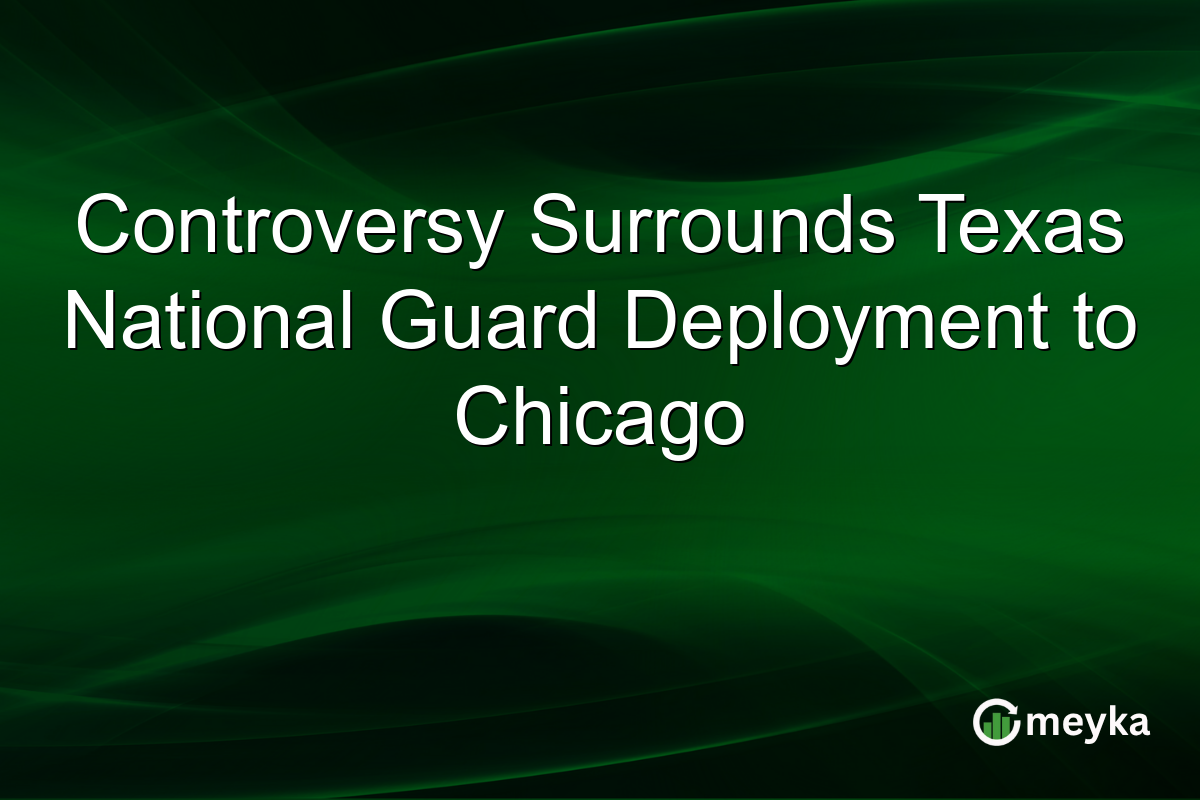Controversy Surrounds Texas National Guard Deployment to Chicago
The recent deployment of Texas National Guard troops to Chicago has sparked significant debate. This maneuver, aimed at addressing the ongoing migrant crisis, has drawn criticism from Illinois leaders. Governor J.B. Pritzker questions the legality and purpose of such interstate military involvement. This situation highlights broader tensions over immigration policy.
Background on National Guard Deployment
The decision to send Texas National Guard troops to Chicago has triggered a legal and political storm. Originally intended to support local authorities in managing migrant inflows, this measure has not been universally welcomed. Critics argue it bypasses traditional federal processes. This shows how state actions can complicate national immigration strategies. Governor J.B. Pritzker has openly criticized the decision. He emphasizes the need for collaborative federal solutions rather than unilateral state actions. This highlights growing fatigue with current immigration management and the desire for federal intervention. For more on the Chicago backlash, visit Bloomberg.
Governor J.B. Pritzker’s Response
Governor Pritzker has been vocal in opposing the troop deployment. He contends that such actions may overstep legal boundaries and exacerbate tensions. His response underscores a call for clear legal frameworks governing National Guard deployments across state lines. Furthermore, local leaders echo these sentiments, urging for transparent communication from both state and federal governments. The governor’s stance reflects broader regional concerns over state militarization and its implications. This controversy is more than a single state’s issue; it touches on interstate cooperation and unity.
The Migrant Crisis in Illinois
Chicago, a focal point in the migrant crisis, faces immense pressures. The influx of migrants seeking asylum has challenged city resources and infrastructure. The National Guard’s role here is controversial; while some say it aids overburdened resources, others argue it militarizes humanitarian concerns. Illinois leaders have pushed for more supportive strategies that offer long-term solutions. This situation brings to light the need for comprehensive immigration reform. Harmonized efforts between state and federal agencies are critical for sustainable crisis management. The wider community sentiment can be explored here CNBC.
Legal Implications and Future Prospects
This deployment raises key legal questions about state powers and National Guard usage. Traditionally, such movements are federally authorized. The unilateral nature of Texas’s decision has invited legal scrutiny and potential challenges. Looking ahead, this may set a precedent for state-driven military interventions in domestic affairs. Ongoing legal discourse will likely shape future state and federal relations in matters of national concern. It emphasizes the importance of legal clarity and cooperative governance. For further insights, visit Reuters.
Final Thoughts
The deployment of the Texas National Guard to Chicago signifies more than a state-level initiative; it reflects deeper divides in national policy and governance. While aimed at addressing immediate challenges of the migrant crisis, it raises significant legal and ethical questions. Governor Pritzker’s opposition highlights the need for cohesive, federally backed strategies rather than fragmented state approaches. As legal debates continue, the broader implications for state authority and immigration policy cannot be overlooked. Clear, cooperative strategies are essential for sustainable solutions.
FAQs
The Texas National Guard has been sent to Chicago to assist local authorities with the influx of migrants. This deployment is controversial, as some view it as a necessary support while others see it as an overreach of state authority.
Governor J.B. Pritzker has criticized the deployment, questioning its legality and potential to escalate tensions. His response calls for federally coordinated immigration solutions.
The primary legal concern is whether Texas’s decision to send troops to Chicago without federal approval oversteps state authority. This raises questions about the scope of state power in national matters.
Disclaimer:
This is for information only, not financial advice. Always do your research.






